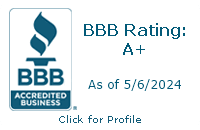Keeping up with sales tax and related issues is a real challenge. Sales tax can be really complicated, especially as businesses start growing and extending into more than one state. Getting it wrong can be costly and can lead to unpaid sales tax and hefty penalties impacting on profitability. Using a third party software as a service for sales tax compliance can help with managing the complexities of differing tax rates, nexus and exemption certificates, saving a lot of time and money for businesses. This is true for small and medium sized businesses as well as large corporations.
In the United States alone there are more than 11,000 tax jurisdictions. That is a lot of jurisdictions to keep track of. Sales tax rates between these different jurisdictions can vary considerably. Jurisdictions are not necessarily neatly laid out and they also do not follow postal system boundaries. They overlap with one another in some places, adding to the complexity of managing tax. In addition there is a lot of inconsistency in sales tax. What is taxable in one area may not be in another, or it might be but only under certain circumstances. Add to that the fact that there may be up to 5,000 different changes to sales tax in just one year and it is easy to see why many organizations get into a muddle with sales tax. Even keeping track of dates when tax remittances are due can be a considerable undertaking for larger businesses that operate in many states, leading to errors. Yet making mistakes is problematic and can lead to difficulties with tax authorities.
As can be seen, manual compliance is quite challenging. The chance of making a mistake is very high due to the difficulties of keeping track of the various elements of the system. On the other hand, sales tax compliance systems are specially designed to handle this level of complexity. This can help to avoid problems, especially in the case of an audit. MOST® businesses can expect to be audited every three years or so and in those situations all of the right information has to be on hand when requested. One of the great benefits about sales tax compliance systems is that they keep track of all the different changes in sales tax arrangements, ensuring that the correct sales tax rate is applied to every transaction all of the time.
In particular, identifying the actual sales tax for different locations can be particularly problematic. It is not even possible to assume that houses on the same street are subject to the same tax codes. Next door neighbors may have different codes, and this becomes more likely closer to state boundaries or jurisdiction boundaries. This means that companies cannot accurately use zip codes to assess tax rates because tax rates may differ within a zip code. One way to get beyond this is to use geo-location instead. Keeping on top of tax by geo-location is nearly impossible without systemizing the approach taken, yet this is the only way to make sure that sales tax rates are completely accurate. Geo-location uses satellite technology, latitude and longitude to pin point geographic locations which can then be mapped against sales tax rates. Only by using this approach can organizations be sure that they are accurately taxing customers for the purchases that they make. Free tools are available to help with knowing the geo-location for any given point, but the down side of using such tools is that it is not automated and the location has to be entered into the system manually. A sales tax compliance system will have all of this information programmed in, allowing time to be better spent on other tasks.
Exemption certificates are another area where problems can occur with sales taxes. Exemption certificates allow those buying products or services that would normally require them to pay sales tax to not have to do so. The problem for companies is that these exemption certificates must be kept up to date at all times. It a company does not charge sales tax when they do not have an up to date exemption certificate from the buyer then this becomes a problem for the seller. The company needs to ensure that it has up to date exemption certificates in case of an audit as well as to ensure that the law is not being broken. Again, keeping track of all of this can become a bureaucratic nightmare. Sales tax compliance systems have in-built processes for requesting up to date certificates when a new certificate becomes due. They collect, store and manage all exemption certificates. This saves the company the pain of having to monitor this area manually.
Yet another difficult challenge relating to sales tax is that of nexus. These connections or ties used to be straightforward, but states are starting to become more aggressive about how these are managed, and what constitutes the need for sales tax. It used to be that if you had a physical presence in a state such as a corporate office or employees then sales tax had to be paid. Now however, this “physical presence” can include sending people in to do trade shows or demos. Even having a marketing affiliate web link on a website in a state can be counted as physical presence, leading to a requirement that sales tax is paid. Parent companies, sister companies and subsidiaries may also be subject to sales tax. Sales tax compliance systems can again help companies to keep on top of all of this.
As well as offering the benefit of keeping track of sales tax due by geo location, exemption certificates, nexus, and tax remittance due dates and filing, sales tax compliance systems can be easily integrated with other business systems. They are designed to be integrated with accounting systems, enterprise resource planning systems, ecommerce, point of sale, mobile payments systems and customer relationship management systems. This means that systems are all linked up for smoother processes and consistency between each. With sales tax compliance systems businesses can be sure that their sales tax is calculated correctly every single time and that there are no delays on submitting remittances on due dates. All of this saves time and money and avoids difficult situations with tax authorities during audit.










